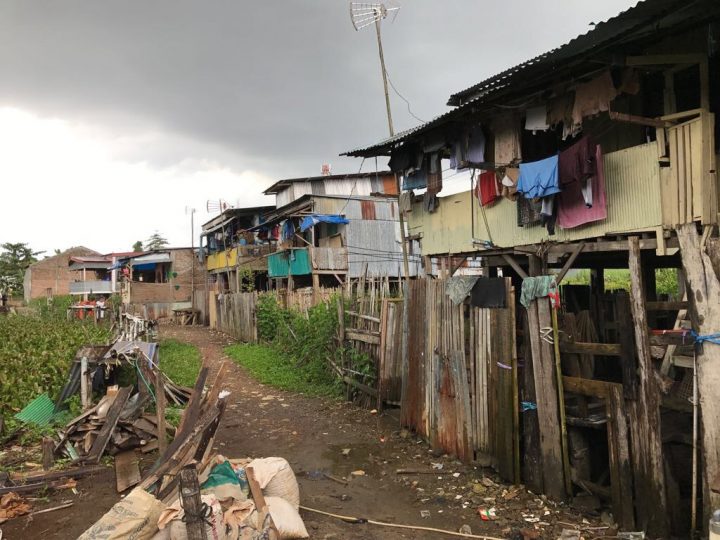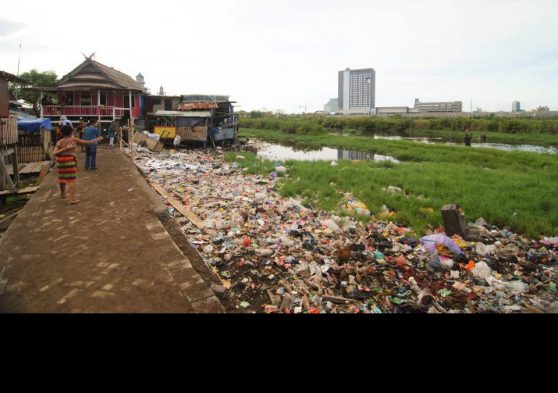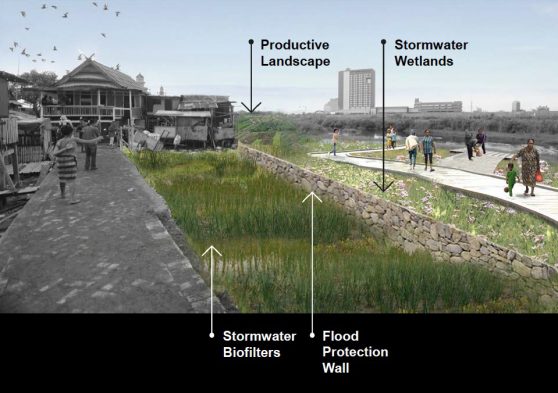World Toilet Day 2017: Wastewater
Replicating nature to manage wastewater in urban informal settlements
On World Toilet Day, more than 40% of the world’s population lacks access to a safe and reliable water source, according to the United Nations Development Program, with that figure projected to rise over coming decades. Over 80% of wastewater from human activities is discharged without treatment into the environment, and 1.8 billion people are left drinking water contaminated with faecal matter. As a result, almost 1,000 children die each day from preventable diarrhoeal disease.
Water, sanitation, and hygiene are crucial to this picture. But while mainstream approaches for improving these basic services have had strong success, there is still much to be done. Additional approaches are needed to achieve Sustainable Development Goal 6: clean water and sanitation for all.
To help efforts, an interdisciplinary, global team of researchers is channelling its work into the Revitalising Informal Settlements and their Environments (RISE) program.
RISE will provide unprecedented insights into an environmentally sustainable “water sensitive cities” approach to water management. The aim: to improve the health and well-being of over a billion people in urban informal settlements, where growing populations and climate change are intensifying the challenges.

Embracing a connected cycle of all available water sources in a local area, the water sensitive approach integrates “nature-based solutions” – like artificial wetlands with smart new septic tanks – into urban buildings and landscapes.
By applying a suite of infrastructure and ideas chosen to suit each location, RISE aims to enable 24 informal settlements in Fiji and Indonesia to independently harvest their own rainwater and stormwater, recycle wastewater, and protect against flooding and pollution. Those outcomes will mean more secure water supplies, and a cleaner environment where wastewater is handled safely.


“Strategies like biofiltration gardens or constructed wetlands use nature itself – vegetation, soil and organisms – to remove pollutants from wastewater. The treated water can then be safely reused to support domestic and economic activities, like toilet flushing or farming flowers for sale,” said Kerrie Burge from the CRC for Water Sensitive Cities, and part of the RISE team.
“Access to clean water and sanitation is a human right and essential to the fulfilment of all other rights. Developing nations must be enabled to leapfrog the mistakes made by other countries,” said Ms Burge.
“Innovative, interdisciplinary approaches with sound practical applications, together with collaboration across countries and institutions, can really strengthen our global ability to achieve the Sustainable Development Goals.”
Working alongside communities, local leaders, and governments in Fiji and Indonesia, RISE aims to deliver the first-ever rigorous evidence that a localised, water sensitive approach to upgrading informal settlements can deliver sustainable, cost-effective improvements in both human and environmental health.